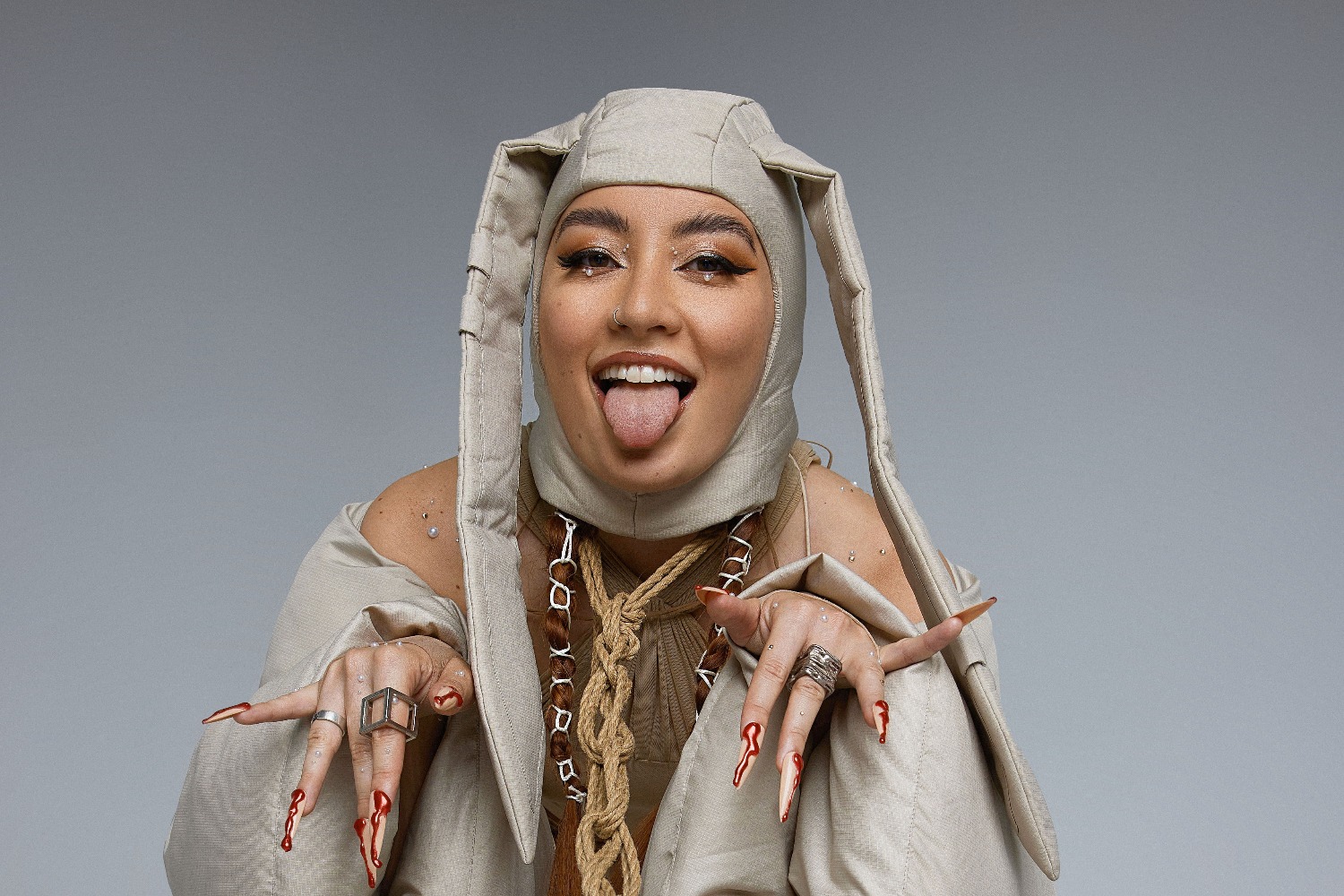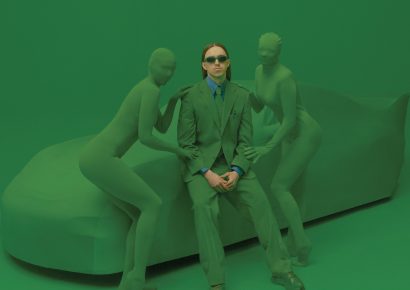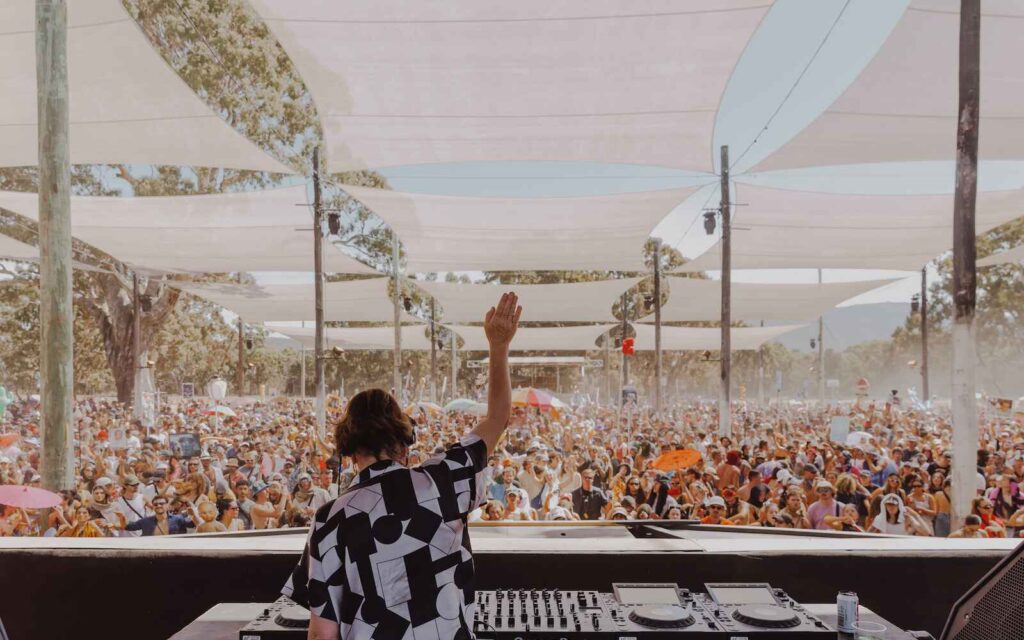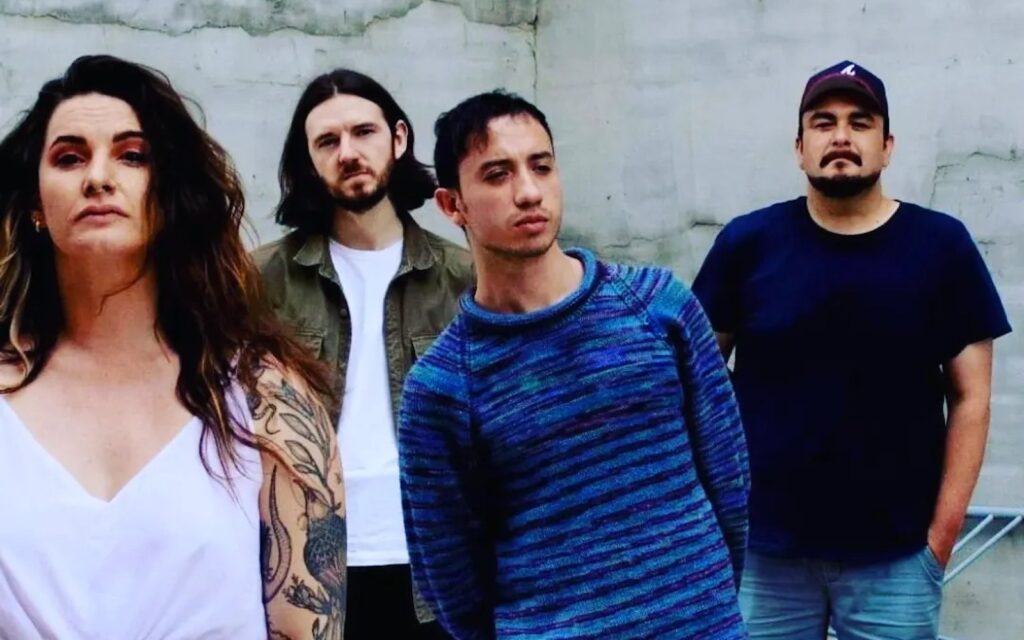There's always pressure surrounding debut albums.
They’re the opening statement on what you hope will be a long and fruitful career – the first pitch of the flag; the first real mark of an artist’s territory. When we spoke to Jaguar Jonze, however – the nom-de-plume of singer, songwriter, producer and activist Deena Lynch – there was an extra degree of this undesirable side-effect pulsing through the veins of her debut album Bunny Mode. For one, it was overdue.
“I’m anxious, because I’m concerned I haven’t given it enough time to be released into the world strategically,” she confesses – the first of what will be many arrestingly honest moments throughout her conversation with Beat. “I poured everything into this album, and I really hope the fact that I went over deadline and left it quite late to finish isn’t going to bite me in the arse.” Lynch’s 2022 began with a fiery return to the stage: For the second time in her career, she was a finalist to represent Australia at Eurovision.
Read Melbourne’s most comprehensive range of features and interviews here.
“I can’t even begin to explain the stress and pressure of Eurovision,” she says exasperatedly. “Nothing else can occupy your brain and your energy while you’re in it. Until that was done, I wasn’t able to get back into making the album.” Shortly after completing the contest, however, two members of Lynch’s family passed away – which understandably derailed the process yet again. “It was really heartbreaking for us,” she says. “I really had to stop everything and grieve, and give time to both myself and the people that I love.”
Now, at long last, we witness Bunny Mode – an album that weathers the storms that have surrounded Lynch’s professional and personal life, but also showcases the vision of one of the most steadfast and forward-thinking creatives in Australian music right now. It’s a bold, high-octane record that’s equal parts playful and pugilistic – you can dance to “Who Died And Made You King?”, absolutely, but you never forget whose grave you’re dancing on.
“In the Australian music industry, they’re all aware of who died,” says Lynch. “That song was released during this phase I hadn’t been in before, where I was allowing myself to really feel anger.”
“As a woman of colour, I’ve been trained to be quiet for so long – to be submissive and small, not disruptive. This song was the opposite of that.” The thudding electro-pop single interpolates a melody from “Blood On Our Hands,” an incendiary 2004 single from dance-punk duo Death From Above 1979. Curiously, however, Lynch had never even so much as heard of the Canadian band at the time.
“The song was written in collaboration with other people, so I’m not sure if the interpolation came into it unknowingly or not,” she says. “When I was showing the finished song to some friends, one of them showed me ‘Blood On Our Hands’ – and I knew straight away that the likeness was undeniable. I reached out to their team, and we discussed an appropriate credit split so I could pay my respect to their artistry. I was anxious when I found out, but I found this weird synergy that I thought was really sick – I mean, it’s a song called ‘Blood On Our Hands’ from an album called You’re a Woman, I’m a Machine. It felt like this call and response to what I was writing about, and I loved that sentiment.”
Bunny Mode sees Jaguar Jonze broadening the horizons of her creative vision to their widest expanse yet. Having always taken pride in overseeing every aspect of her music, making the record allowed Lynch to pursue all of them to the nth degree. In particular, she notes a real development of her visual artistry in tandem with the album’s creation – something she felt she wouldn’t have had the wherewithal to see through even a few years ago. “I was once very meek about things,” she says.
“I was very shy, and I didn’t believe in myself, and I didn’t have the self-love that I deserve to give to myself. To achieve a vision, I was always co-captaining with someone else – who, oftentimes, would be a man who was very dominant. They’d cut me down, and make it very difficult for me to believe in myself as an artist. With this album, I have directed, produced and edited all the music videos. I never thought I would be able to do that on my own. I’m so proud of what I was able to achieve, because I grew in confidence within myself and I allowed it to happen.”
View this post on Instagram
Lynch goes on to note that this growing confidence transcends the senses on the album – if it’s not apparent when you see it in its visual form, it very much will be when you hear it. Besides the inherent obvious in the subject matter, the music of Jaguar Jonze has never sounded this assertive and boisterous. Excellent as her back catalogue is, it always hinted at greater things to come – and, to put it simply, here they are. “For so long, I was writing songs in Morse code,” says Lynch.
“I was scared to speak my truth, and to use my voice. I would dilute things, just so that I could be palatable to society.”
“This time, I worked so hard on the melody and the lyrics like I had never done before – it was honestly such an excruciating songwriting process, because I wanted every word I chose to mean something. I wanted this album to be a safe space for people to come into and to resonate with – so if they were ever fighting for something bigger than they are, they could resonate and connect with these song and know they’re not alone. Together, we can use our voices to make something of ourselves, and redefine our power to claim back our own lives.”
You may note that the conversation with Lynch has largely centred on her artistry rather than her advocacy. This has been done by design – not because Lynch’s work outside of her music isn’t important, but rather that her work within it is just as much so and deserves its equal footing. Having shared her story of survival on ABC’s Four Corners and Channel 10’s The Project, Lynch is now arguably better known for speaking out than for singing and songwriting – an egregious oversight that seemingly defeats the entire purpose of her taking a stand in the first place.
“I’m concerned that I am overshadowed by my advocacy,” says Lynch. “It’s ironic that I’ve had to put my artistry aside to advocate for safety in an industry that I came into, because I wanted to be an artist. I want my opportunity and my time to shine. I want to be valued – not only for the brave, and courageous work I did as an advocate. Mainly, I just want to be able to have a sustainable career in my own country, As of right now, I’m struggling to hold on to that, because people find me more useful for another purpose and more disposable as an artist.”
Going into “bunny mode,” for those that don’t know, is a term that stems from presenting yourself as soft and non-threatening – retreating into your hole, withdrawing into yourself. Bunny Mode is an album about outliving, outlasting and outrunning the need for such a thing – if there was an elephant in the room before, it’s started tearing down the house entirely now. “It took so much sacrifice, it took, living through my trauma every single day in the public eye,” says Lynch. “I didn’t get much in return, and didn’t expect much, but there is a pain that comes with that.
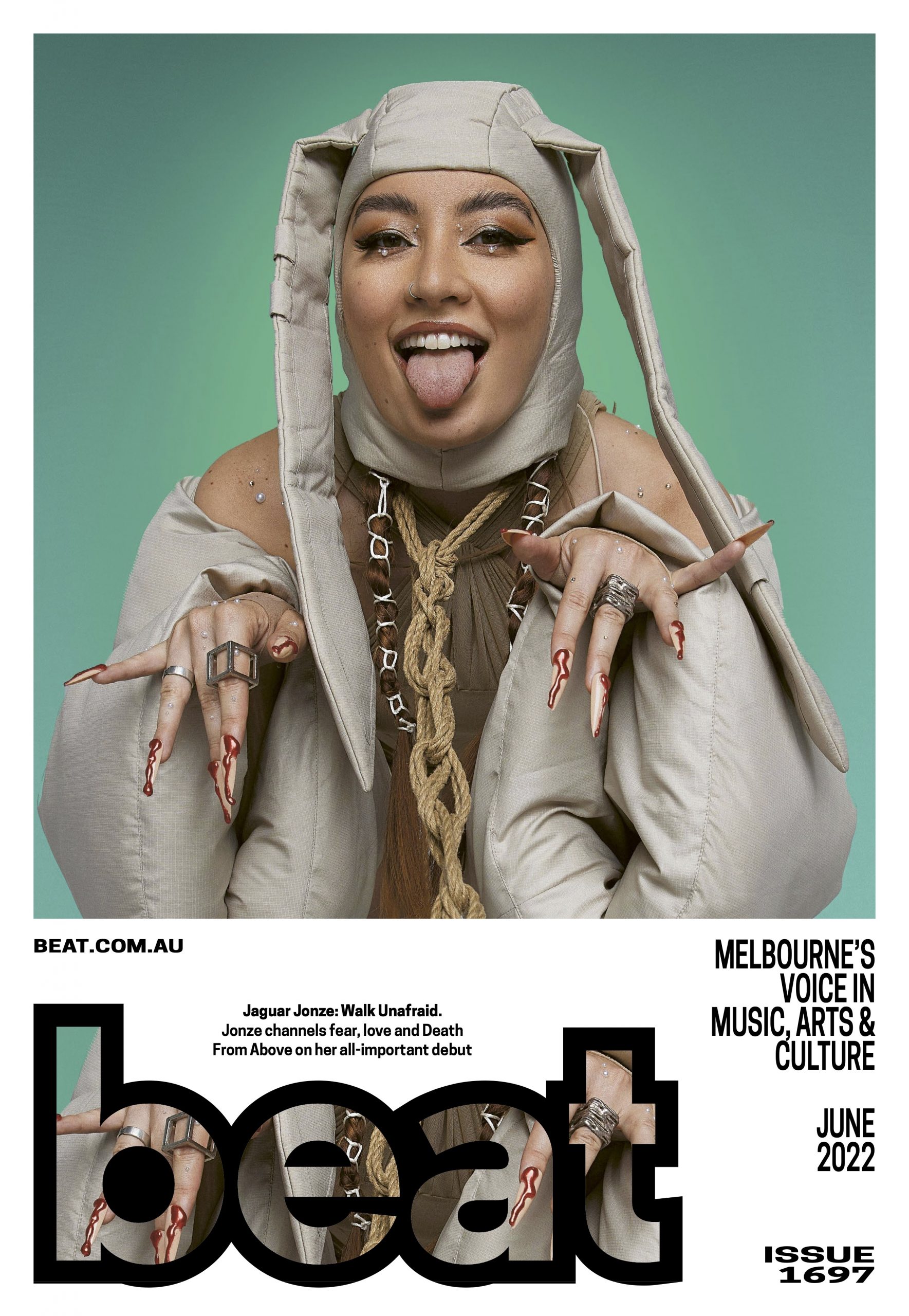
Bunny Mode dropped on June 3 via Nettwerk Records. Listen to it here. Jaguar Jonze is also our cover story in our June issue, available for free in nearly 1000 locations across Melbourne.
